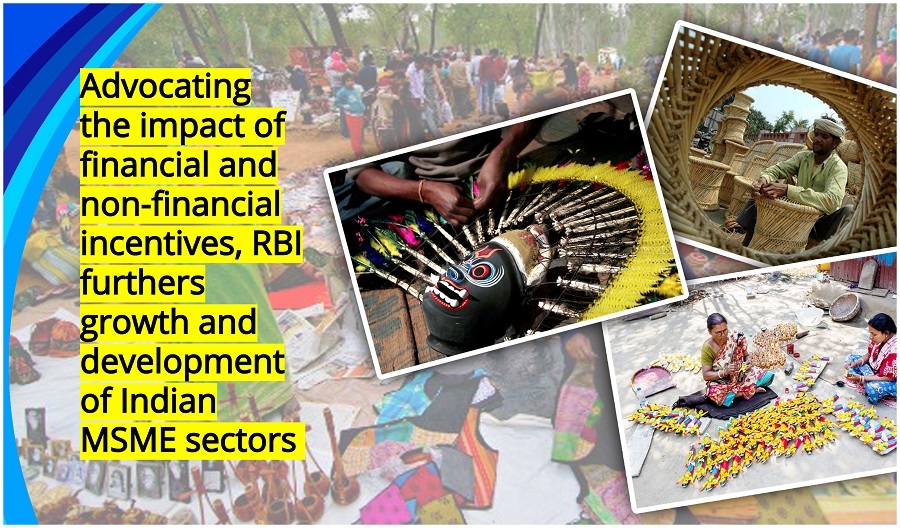Advocating the impact of financial and non-financial incentives, RBI furthers growth of Indian MSME sectors
Total Views |
Mumbai, June 25: Furthering the growth and development of the MSME sectors in India, U K Sinha, former chairman of SEBI, consented its working on the topic of economic and national importance to the Reserve Bank. This is after the SEBI held intense interactions with various stakeholders and international experts across the country.

The eight-member committee headed by Sinha reviewed the framework for the micro, small and medium enterprises, and suggested long-term solutions for the economic and financial sustainability for the sector. They further studied the impact of the recent economic reforms on the sector and identify the structural problems impacting its growth.
“Micro, Small and Medium Enterprise sector has emerged as a very important sector of the Indian economy, contributing significantly to employment generation, innovation, exports, and inclusive growth of the economy. The Centre and Reserve Bank of India have taken a number of measures from time to time to support this sector. A number of committees appointed by them have identified issues and made recommendations in the past”, said U K Sinha highlighting the objective over all.
Further, enabling environment, encompassing tax concessions, well developed infrastructure, ease of doing business, exit policy, available in other countries, the committee recommended suitable financial and non-financial incentives to be deployed to retain successful Indian start-ups entities in India.
“The committee held its deliberations including consultations with various stakeholders to come out with the report. It also examined the factors affecting the timely and adequate availability of finance to the MSME sector”, said the Reserve Bank of India in its statement.
Suggesting for creation of Digital Public Infrastructure that will have the potential to reduce loan operating costs significantly, the Committee Furthermore addressed information asymmetry that improves credit access and overall quality in the lending space.